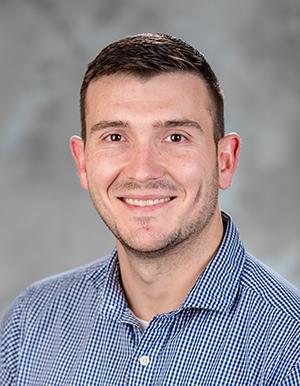The American Chemical Society Catalysis Science and Technology Division has recognized Andrew J. Medford, assistant professor in Georgia Tech’s School of Chemical and Biomolecular Engineering (ChBE), with the Early Career in Catalysis Award.
The American Chemical Society Catalysis Science and Technology Division has recognized Andrew J. Medford, assistant professor in Georgia Tech’s School of Chemical and Biomolecular Engineering (ChBE), with the Early Career in Catalysis Award.
Medford will receive the award at a special symposium at the ACS Fall National Meeting in San Francisco to be held August 13-17, 2023.
This award recognizes and encourages accomplishments and innovation of unusual merit by an individual in the early stages of their career who has earned a PhD in the past 10 years. Independence and creativity of the researcher are primary criteria for the award.
Medford completed his PhD at Stanford University in 2015 and joined the faculty of ChBE in 2016. Medford is interested in leveraging materials informatics, statistics, and machine learning to maximize the practical impact of fundamental atomic-scale simulations in the field of surface science and catalysis. His research areas include heterogeneous catalysis, oxide surface chemistry, density functional theory, kinetic models, uncertainty quantification, and Bayesian optimization and inference.
Medford’s previous honors include the BP/CTL Junior Faculty Teaching Excellence Award in 2020 and the National Science Foundation CAREER Award the same year.
The American Chemical Society Catalysis Science and Technology Division has recognized Andrew J. Medford, assistant professor in Georgia Tech’s School of Chemical and Biomolecular Engineering (ChBE), with the Early Career in Catalysis Award.
Medford will receive the award at a special symposium at the ACS Fall National Meeting in San Francisco to be held August 13-17, 2023.
This award recognizes and encourages accomplishments and innovation of unusual merit by an individual in the early stages of their career who has earned a PhD in the past 10 years. Independence and creativity of the researcher are primary criteria for the award.
Medford completed his PhD at Stanford University in 2015 and joined the faculty of ChBE in 2016. Medford is interested in leveraging materials informatics, statistics, and machine learning to maximize the practical impact of fundamental atomic-scale simulations in the field of surface science and catalysis. His research areas include heterogeneous catalysis, oxide surface chemistry, density functional theory, kinetic models, uncertainty quantification, and Bayesian optimization and inference.
Medford’s previous honors include the BP/CTL Junior Faculty Teaching Excellence Award in 2020 and the National Science Foundation CAREER Award the same year.
